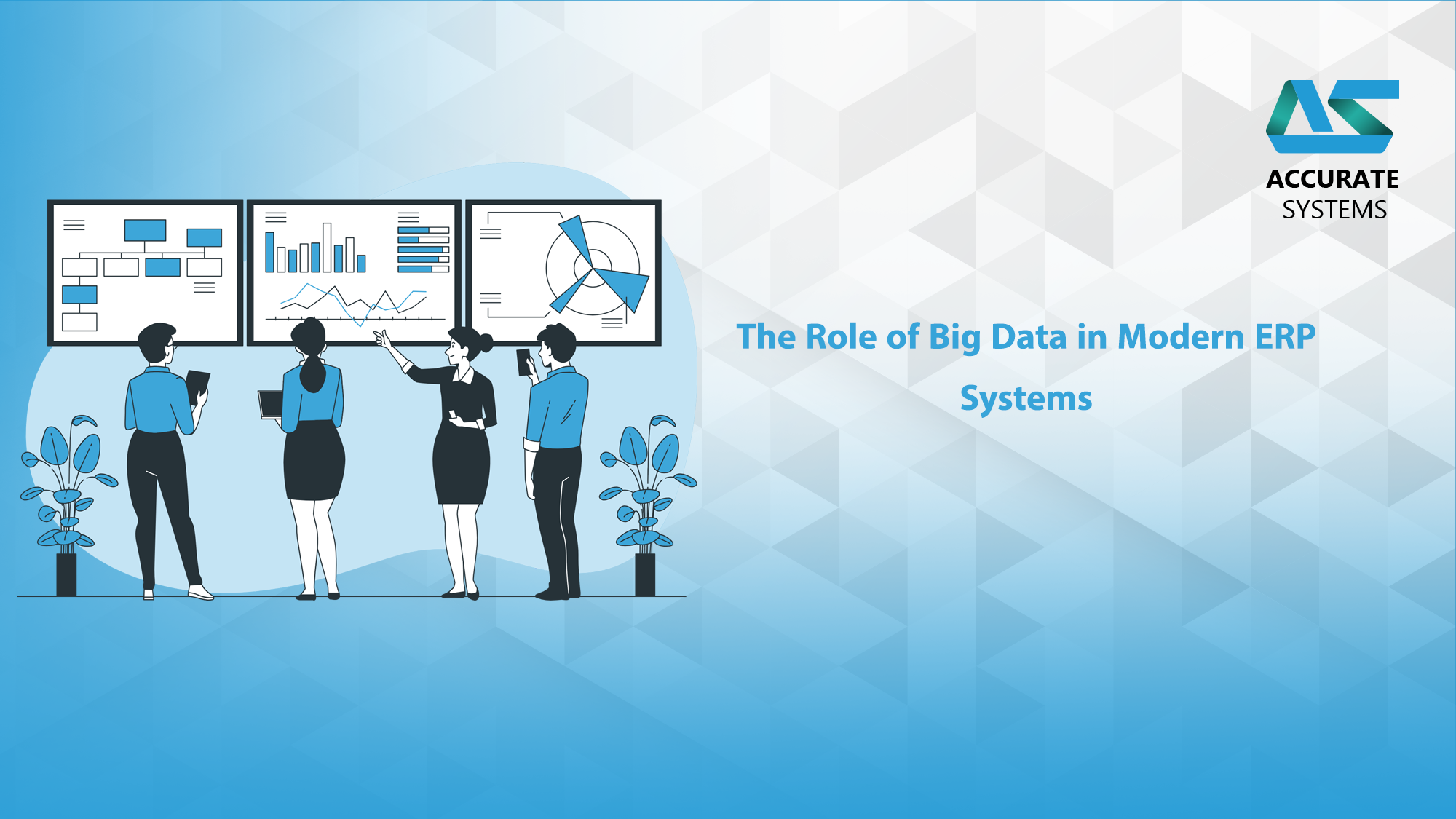In today’s data-driven world, businesses generate enormous volumes of information daily. This surge in data, known as “big data,” is transforming industries and redefining the functionality of modern Enterprise Resource Planning (ERP) systems. Harnessing big data is essential for businesses aiming to stay competitive and make smarter decisions. Let’s explore how big data enhances ERP systems and drives informed decision-making.
What Is Big Data?
Big data refers to large, complex datasets generated from multiple sources, including:
- Customer transactions
- IoT devices
- Social media platforms
- Supply chain operations
Modern ERP systems are designed to collect, analyze, and utilize this data to provide actionable insights, helping businesses streamline operations and improve decision-making.
How Big Data Enhances Decision-Making in ERP Systems
1. Real-Time Insights
Big data enables ERP systems to provide real-time analytics, offering immediate visibility into business operations.
- Example: Track inventory levels in real-time to avoid stockouts or overstocking.
- Benefit: Faster decision-making and more agile operations.
2. Predictive Analytics
ERP systems integrated with big data use predictive analytics to forecast trends and outcomes based on historical data.
- Example: Forecast seasonal demand to optimize inventory management.
- Benefit: Better resource allocation and reduced operational costs.
3. Data-Driven Strategies
Big data empowers businesses to identify patterns and correlations, enabling the development of targeted strategies.
- Example: Analyzing customer behavior to tailor marketing campaigns.
- Benefit: Higher ROI and improved customer engagement.
Key Applications of Big Data in ERP Systems
1. Supply Chain Management
Big data optimizes supply chain processes by providing insights into procurement, production, and delivery.
- Feature: Integration with IoT devices for real-time tracking.
- Impact: Increased efficiency and cost savings.
2. Financial Forecasting
Big data helps businesses forecast revenue, expenses, and cash flow more accurately.
- Example: Identifying spending patterns to predict future financial trends.
- Benefit: Improved financial planning and reduced risks.
3. Customer Relationship Management (CRM)
Big data enhances CRM by analyzing customer interactions and preferences.
- Feature: Sentiment analysis from social media feedback.
- Impact: Improved customer retention and loyalty.
4. Workforce Management
ERP systems use big data to optimize workforce allocation and monitor employee performance.
- Example: Analyzing productivity data to identify training needs.
- Benefit: Higher efficiency and job satisfaction.
The Role of AI and Machine Learning in Big Data
Modern ERP systems leverage artificial intelligence (AI) and machine learning (ML) to process big data effectively.
- Feature: Automated anomaly detection in financial transactions.
- Benefit: Enhanced security and operational efficiency.
Challenges of Integrating Big Data with ERP Systems
Despite its advantages, integrating big data into ERP systems presents challenges:
- Data Quality: Ensuring accuracy and consistency.
- Scalability: Managing the growing volume and variety of data.
- Cost: Investing in infrastructure and tools.
Real-World Examples of Big Data in ERP Systems
Retail Industry
- Scenario: A retail chain uses big data and ERP to analyze sales data across multiple locations.
- Outcome: Optimized inventory and increased revenue through targeted promotions.
Manufacturing Sector
- Scenario: A manufacturer integrates IoT sensors with ERP to monitor machine performance in real-time.
- Outcome: Reduced downtime and improved production efficiency.
The Future of Big Data in ERP Systems
Big data in ERP systems is evolving with innovations such as:
- Edge Computing: Faster data processing closer to the source.
- Blockchain Technology: Enhanced data security and transparency.
- Augmented Analytics: Simplified analytics for non-technical users.
Conclusion
Big data is revolutionizing ERP systems, enabling businesses to make smarter, faster, and more informed decisions. From real-time analytics to predictive insights, the integration of big data with ERP systems is transforming industries worldwide.
If you’re ready to unlock the potential of big data in your ERP system, Accurate Systems can guide you through the process. Contact us today to learn how we can help your business thrive in the digital era.

